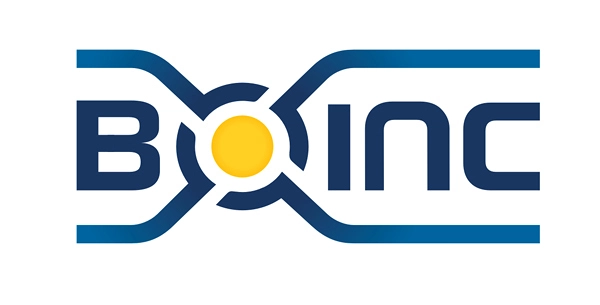deleted by creator
- 212 Posts
- 806 Comments
In the last two months, Nostr users alone (decentralized twitter clone like Mastodon) sent each other 2.6 million tips (individual transactions) over Bitcoin lightning. In that same time period, Bitcoin main chain did around 20-40k. Most transactions are on lightning by number of transactions. Maybe not by total value moved, but lightning is pretty opaque and grants additional privacy, so it’s hard to measure for that reason.
Lightning continues to grow and get upgrades (look up BOLT12 if you are curious about the latest upgrades which bring additional privacy enhancements).


 121·1 day ago
121·1 day agoIt’s open source, and it’s fully self-custody which are two important features. Having a wallet directly integrated into the e-mail client is nice, being able to send payments to other users just knowing their e-mail address instead of their public key is pretty cool. It does automatic address rotation to preserve privacy. Wish it supported lightning for cheaper/faster transactions and additional privacy but hopefully that feature comes in time.
It’s a self-custody wallet and open source. It’s regular main-chain BTC but it does automatic address rotation. Unfortunately it doesn’t support lightning, which is where the majority of Bitcoin transactions occur. Lightning offers significantly increased privacy, sub-second transactions and fees measuring in pennies.

 8·2 days ago
8·2 days agoAm I missing something? “Like all our services, Proton Wallet is open source so all of our security claims can be checked by the public to enhance security. We have also published the Proton Wallet security model so you can understand how Proton Wallet protects both privacy and security.”

 3·2 days ago
3·2 days agoThey aren’t an intermediary. It’s a fully self-custody wallet.

 2·2 days ago
2·2 days agoIt’s a self-custody wallet, they do not control the keys.
Doesn’t answer your question directly, but nostr is working on this. Nostr is an open protocol like ActivityPub (which underlies Mastodon and Lemmy). Its main use is as a twitter clone right now, but it also has a very new reddit clone and can theoretically support videos as well. And you can choose your own algorithm. Here’s all the choices I get from one of their clients, and there’s dozens of nostr clients to choose from. The cool thing is that anybody can make and publish an algorithm and you can subscribe to any algorithm. Your client does all the sorting locally.


 32·2 days ago
32·2 days agoPersonally very glad to see them roll out this feature. Bitcoin offers pretty decent privacy out of the box, especially with lightning. Like using any technology, using it in a fully private and anonymous way requires some attention to detail. The ability to send/receive BTC from other users knowing only their e-mail address is pretty cool. And the self-custody element is critical.

 11·2 days ago
11·2 days agoThis is not accurate. Monero offers a very high degree of privacy and anonymity. So does Bitcoin lightning, to a lesser degree. Lightning transactions don’t go on chain and are known only to: sender, recipient, and intermediate nodes, if any.

 14·3 days ago
14·3 days agoAnyone can view your transaction history if they know your wallet address
Not true with lightning. Lighting transactions are known only to the sender, recipient, and any intermediary routing nodes, not the entire world. Even on main chain, You can make as many addresses as you want and achieve significant privacy/anonymity using techniques like coinjoin.
Also, it’s not true that it hasn’t seen downtime. It has happened at least once in its early days due to a bug.
Maybe in the first year or two of operation, but it’s been more stable than my bank, my internet connection, or the credit card processors, all of whom have had major outages since then. Which is 10+ years.
Also, there has been many times where it taken more than an hour between blocks. This is more to its probabilistic nature.
Two hours but 99% of the time the next block comes in 10 minutes. Still faster and cheaper than a bank wire or other common payment scenarios. Lightning wouldn’t be effected by this. This happens less often as the network grows and stability of hashpower increases. If you need speed, you use lightning, not main chain.

 323·3 days ago
323·3 days agoWe beat it last time.


 4·3 days ago
4·3 days agoFirst they came for the custodial wallets

 26·3 days ago
26·3 days agoLightning scales very well. Your information is outdated. A single bitcoin transaction can open a lightning channel. You can have trillions of transactions in a lightning channel between you and anybody else with a lightning wallet. All settle instantly for pennies in fees. They literally happen in under a second. In the last two months, Nostr users alone (decentralized twitter clone like Mastodon) sent each other 2.6 million tips (individual transactions) over Bitcoin lightning. Lightning is decentralized and trustless, just like Bitcoin.
No matter how you slice it: market cap, number of nodes, number of transactions, value of transactions, etc. Bitcoin is on a 15-year trend of growth on average.

 11·3 days ago
11·3 days agoChat control was beat. This can be too. Contact your MEP, let them know this issue is important to you: https://www.europarl.europa.eu/meps/en/home

 1·3 days ago
1·3 days agoChat control was beat. This can be too. Contact your MEP, let them know this issue is important to you: https://www.europarl.europa.eu/meps/en/home

 704·3 days ago
704·3 days agoChat control was beat. This can be too. Contact your MEP, let them know this issue is important to you: https://www.europarl.europa.eu/meps/en/home

 171·3 days ago
171·3 days agoChat control was beat. This can be too. Contact your MEP, let them know this issue is important to you: https://www.europarl.europa.eu/meps/en/home
















You can make as many Bitcoin addresses as you want. You can look up an addresses balance but not a wallet’s balance. It’s not as clear as you’re making it sound.
Bitcoin over Lightning is much, much more opaque, and it’s where the majority of Bitcoin transactions are now occurring. You can’t look up somebody’s balance. The only people who know about the transaction are you, the recipient, and any intermediary nodes used to forward the transaction. Privacy is continuing to improve on lightning and main chain.